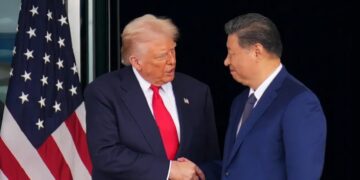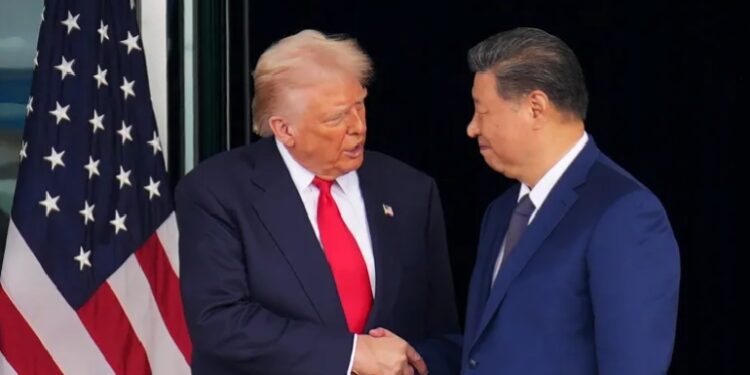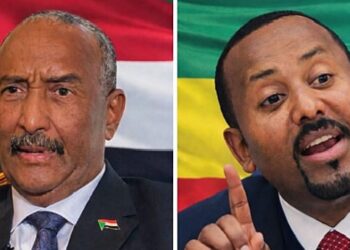By Enyichukwu Enemanna
United States President Donald Trump and his Chinese Xi Jinping have agreed to call off a mutual escalation in their countries’ trade war, reducing tension in heated confrontation that has threatened the global economy.
Trump and Xi sealed a one-year trade truce on Thursday on the sidelines of the Asia-Pacific Economic Cooperation (APEC) summit in South Korea, where the two leaders met face-to-face for the first time since 2019.
The agreement between the two leaders a reprieve to businesses affected by months of back-and-forth trade war. It however did not roll back existing trade barriers, leaving numerous points of contention between the sides unresolved.
“The apparent results of this meeting will be a pause and a small roll back in the trade war,” Dennis Wilder, a professor at Georgetown University who worked on China at the CIA and the White House’s National Security Council told reporters.
“Both sides have not given up their trade weapons but merely have agreed to stop firing as long as both sides hold to the agreements,” Wilder said.
Under the deal, China agreed to defer its planned export controls on rare earths, while the US will drop a threatened 100 percent tariff on Chinese goods.
Trump said he would also lower a 20 percent fentanyl-related tariff to 10 percent after Xi agreed to “work very hard” to stem flows of the synthetic opiate.
“I believe he is going to work very hard to stop the death that is coming in,” Trump said on Air Force One after departing South Korea.
Trump, who hailed his 90-minute meeting with Xi as “amazing”, said the issue of rare earths had been “settled” under the agreement, which he said would be renegotiated every year.
“There’s no roadblock at all on rare earths – that will hopefully disappear from our vocabulary for a little while,” Trump said.
Trump, whose meeting with Xi capped a whirlwind tour of Asia that included stops in Malaysia and Japan, said China had also agreed to purchase “tremendous amounts” of American soya beans.
After Trump’s comments, Xi said the sides had reached a “consensus to address problems” in the talks, but did not directly reference specific details of the agreement.
Washington and Beijing should “promptly refine and finalise follow-up actions” to implement the consensus and “offer tangible results to reassure both countries and the global economy,” Xi said, according to a readout by the state-run Xinhua News Agency.
China’s Ministry of Commerce later confirmed aspects of the agreement, including the one-year deferral of its export controls.




































